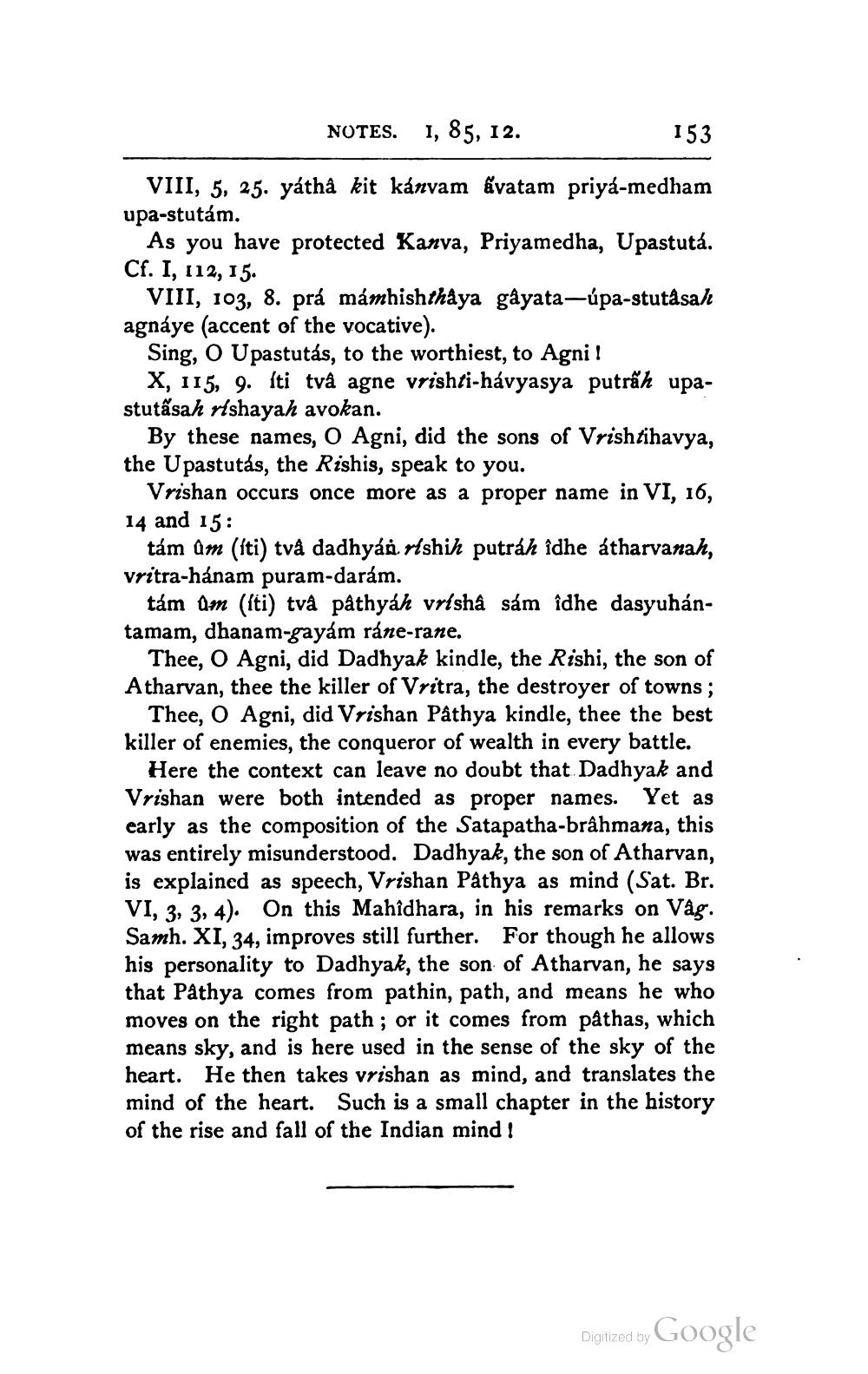________________
NOTES. 1, 85, 12.
153
VIII, 5, 25. yátha kit kánvam ávatam priya-medham upa-stutám.
As you have protected Kanva, Priyamedha, Upastutá. Cf. I, 112, 15.
VIII, 103, 8. prá mámhishthaya gâyata-úpa-stutasah agnaye (accent of the vocative).
Sing, O Upastutás, to the worthiest, to Agni!
X, 115, 9. iti två agne vrishti-hávyasya putrõh upastutásah rishayah avokan.
By these names, 0 Agni, did the sons of Vrishtihavya, the Upastutás, the Rishis, speak to you.
Vrishan occurs once more as a proper name in VI, 16, 14 and 15:
tám ům (sti) två dadhyáåréshih putráh îdhe átharvanah, vritra-hánam puram-darám.
tám 0m (Iti) två påthyáh vrlshà sám îdhe dasyuhántamam, dhanam-gayam rane-rane.
Thee, O Agni, did Dadhyak kindle, the Rishi, the son of Atharvan, thee the killer of Vritra, the destroyer of towns ;
Thee, O Agni, did Vrishan Pathya kindle, thee the best killer of enemies, the conqueror of wealth in every battle.
Here the context can leave no doubt that Dadhyak and Vrishan were both intended as proper names. Yet as early as the composition of the Satapatha-brahmana, this was entirely misunderstood. Dadhyak, the son of Atharvan, is explained as speech, Vrishan Pathya as mind (Sat. Br. VI, 3, 3, 4). On this Mahîdhara, in his remarks on Våg. Samh. XI, 34, improves still further. For though he allows his personality to Dadhyak, the son of Atharvan, he says that Pathya comes from pathin, path, and means he who moves on the right path : or it comes from pathas, which means sky, and is here used in the sense of the sky of the heart. He then takes vrishan as mind, and translates the mind of the heart. Such is a small chapter in the history of the rise and fall of the Indian mind!
Digitized by
Digitized by Google




